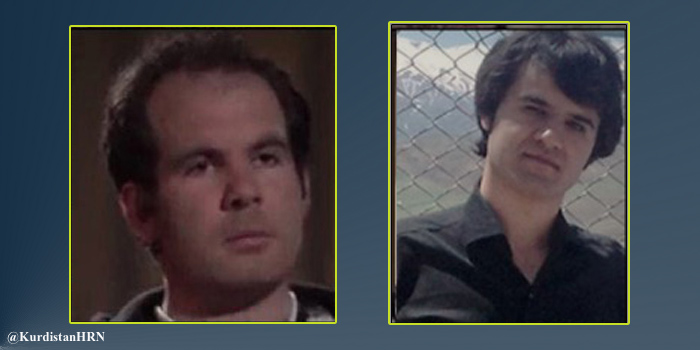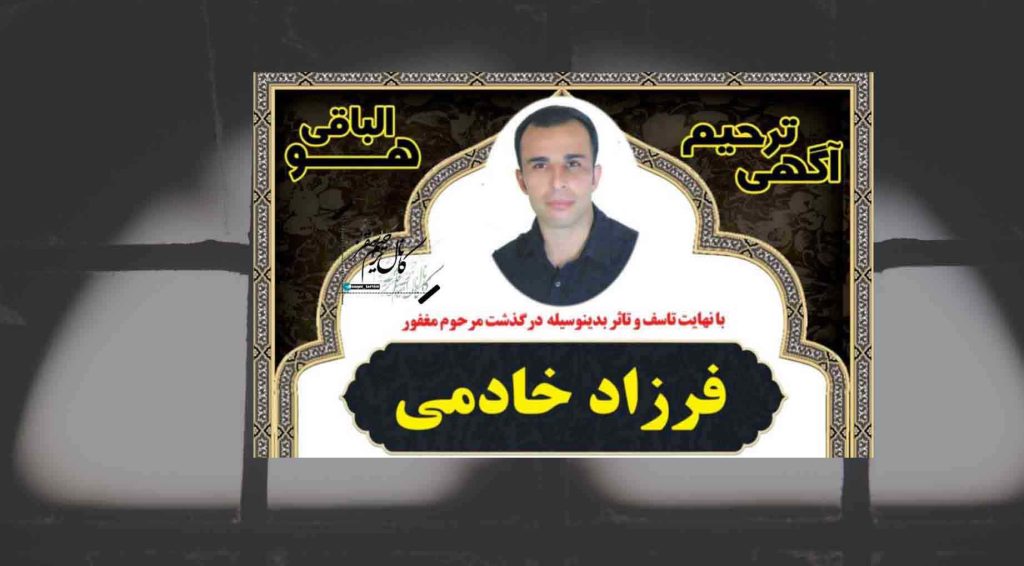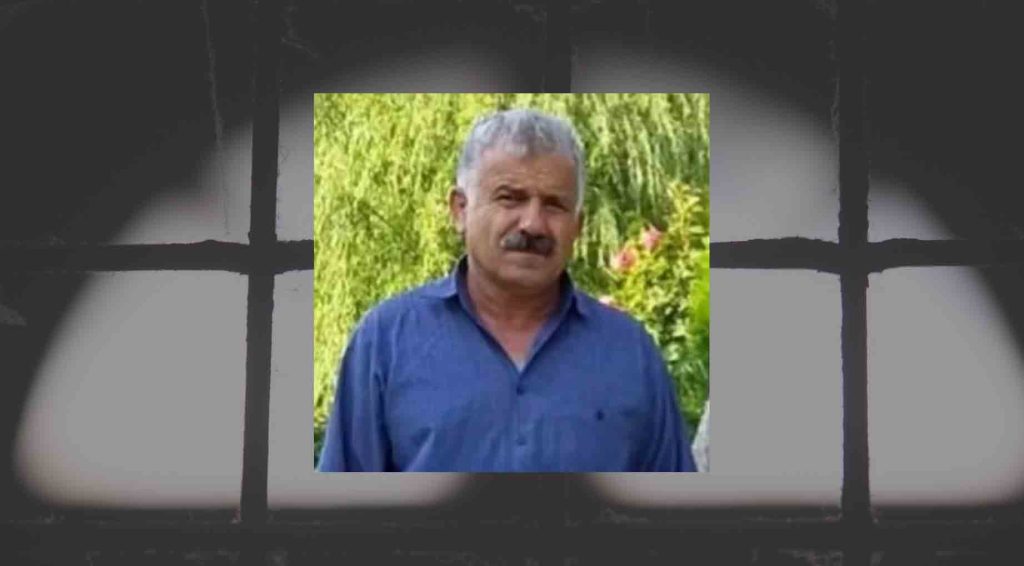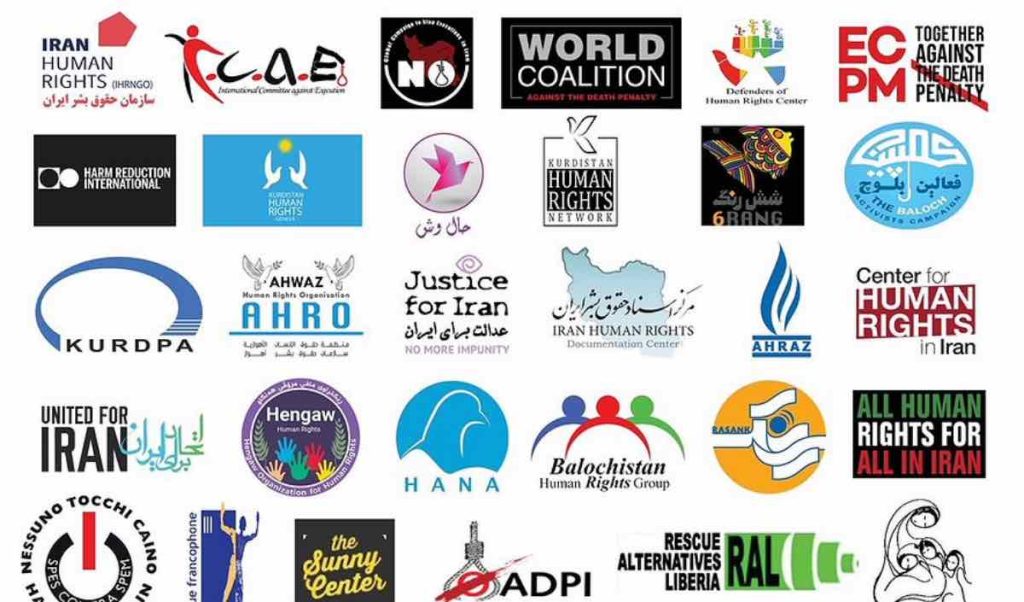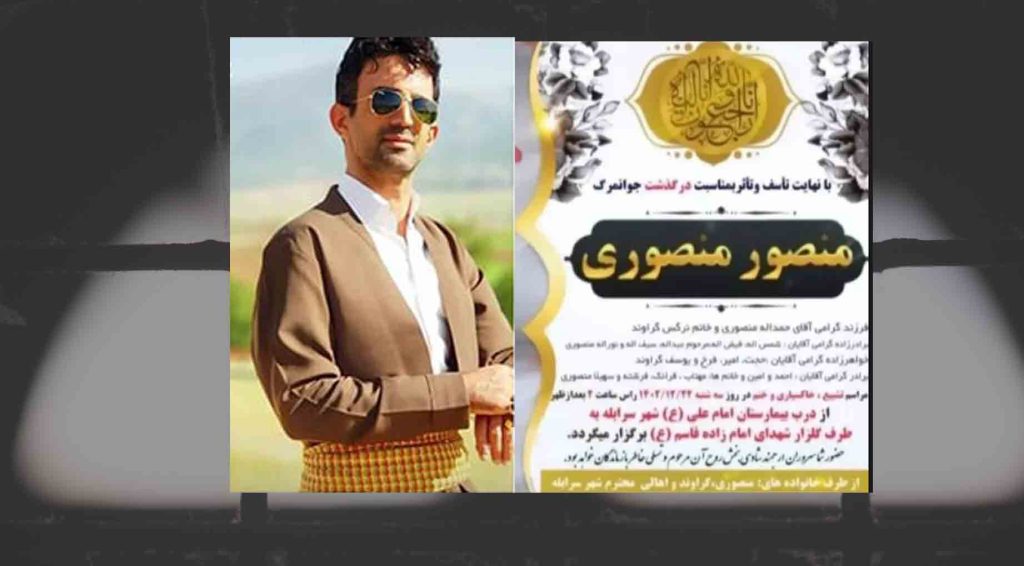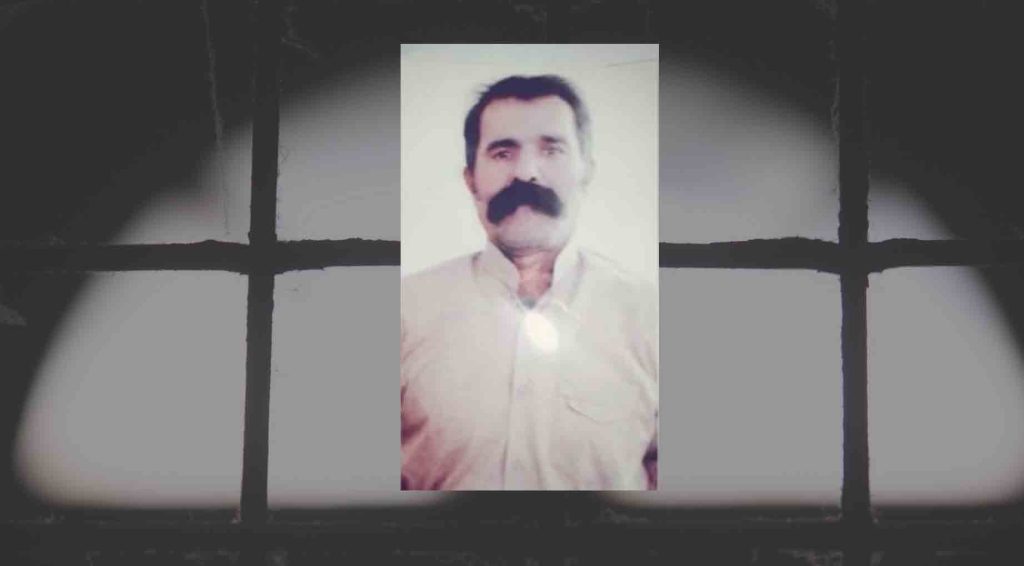The Ministry of Intelligence has refused to hand over the bodies of Saber Sheikh Abdullah and Diako Rasoulzadeh, two Kurdish political prisoners who were executed in Orumiyeh Prison, to their families, reliable sources told the Kurdistan Human Rights Network (KHRN).
“Yesterday, in response to a request from the families of the two political prisoners to collect the bodies of their beloved one, Orumiyeh Prison officials said that intelligence officers had removed the bodies of the two prisoners after their execution and they have no information about the possibility of delivery or burial.”, an informed source in Mahabad told KHRN.
The efforts of the families of Saber Sheikh Abdullah and Diako Rasoulzadeh to receive the bodies of these two political prisoners have so far been ineffective. In recent years, the judiciary and security officials of the Islamic Republic have refused to return the bodies of a large number of executed Kurdish political prisoners to their families and have not even agreed on the location of their burial.According to the United Nations Working Group on Enforced Disappearances, a person who has been executed but whose body has not been returned to his family or whose burial place has not been identified, so that the family can be sure that the person is buried there, such a person is also considered an enforced disappearance.
The source of KHRN in Mahabad also said about the last meeting of Saber Sheikh Abdullah and Diako Rasoulzadeh with their families before the execution: “On Monday, July 14th, the families of the two political prisoners were informed to go to prison for the last visit. However, prison officials had told the detainees and their families a few days ago that the death sentence could be overturned and a retrial could be held, prompting both Diako and Saber and their families to be optimistic that the sentences would be overturned »
According to the source, the families only visited the two Kurdish political prisoners a day before the execution, and prison officials did not allow them to visit the families in person under the pretext of complying with coronavirus health protocols.
A former prisoner in Orumiyeh Prison, who has been cellmate with Saber Sheikh Abdullah and Diako Rasoulzadeh for several years, also told KHRN about the severe torture of the two prisoners: They had blood in their urine for several days, and they themselves said that they had been severely tortured physically and mentally in the detention centre in order to accept the scenario of the Ministry of Intelligence. Diako Rasouli and Saber Sheikh Abdullah and Hussein Osmani did not know each other before the arrest and could not take part in a joint operation.
According to the former prisoner, the Ministry of Intelligence forced them to make confessions under severe torture with the promise of their release. Both were confident that not only would the death sentence be overturned, but also that they would be released soon.
Diako Rasoulzadeh was arrested by security agents in Mahabad on February 25, 2014 and Saber Sheikh Abdullah on March 15, 2014. Also, another kurdish civilian of Mahabad named Hossein Osmani was arrested on February 23, 2014 after being summoned to the Mahabad Intelligence Office. These individuals were subjected to severe physical and psychological pressure and torture for a year in the detention centre of the Orumiyeh Intelligence Office in order to make forced confessions to participating in the Mahabad bombing that took place in September 2010. Both aforementioned prisoners were eventually forced to make televised confessions broadcasted by Press TV in September 2014.
The charge of bombing and the dissemination of these forced confessions took place three years prior to the confessions. On October 25, 2010, Mohammad Pakpour, the commander of Islamic Republic Guard Corps (IRGC) ground forces, announced that “the main and pivotal elements” of the bombing had been killed.Diako Rasoulzadeh and Saber Sheikh Abdullah were sentenced to death on April 7, 2015, and Hossein Osmani was sentenced to death on March 3, 2014. They were charged with “Moharebeh” through membership in the Komala Party and participation in the bombing by Branch 1 of the Islamic Revolutionary Court of Mahabad, headed by Judge Ahmad Javadikia. Upon contesting the verdict by the defendants and their lawyers, the dossiers of these three political prisoners were referred to Branch 47 of the Supreme Court and subsequently sent to the Branch 1 of the Revolutionary Court of Orumiyeh for reconsideration but Saber Sheikh Abdullah and Diako Rasoulzadeh were sentenced to death for the second time.

